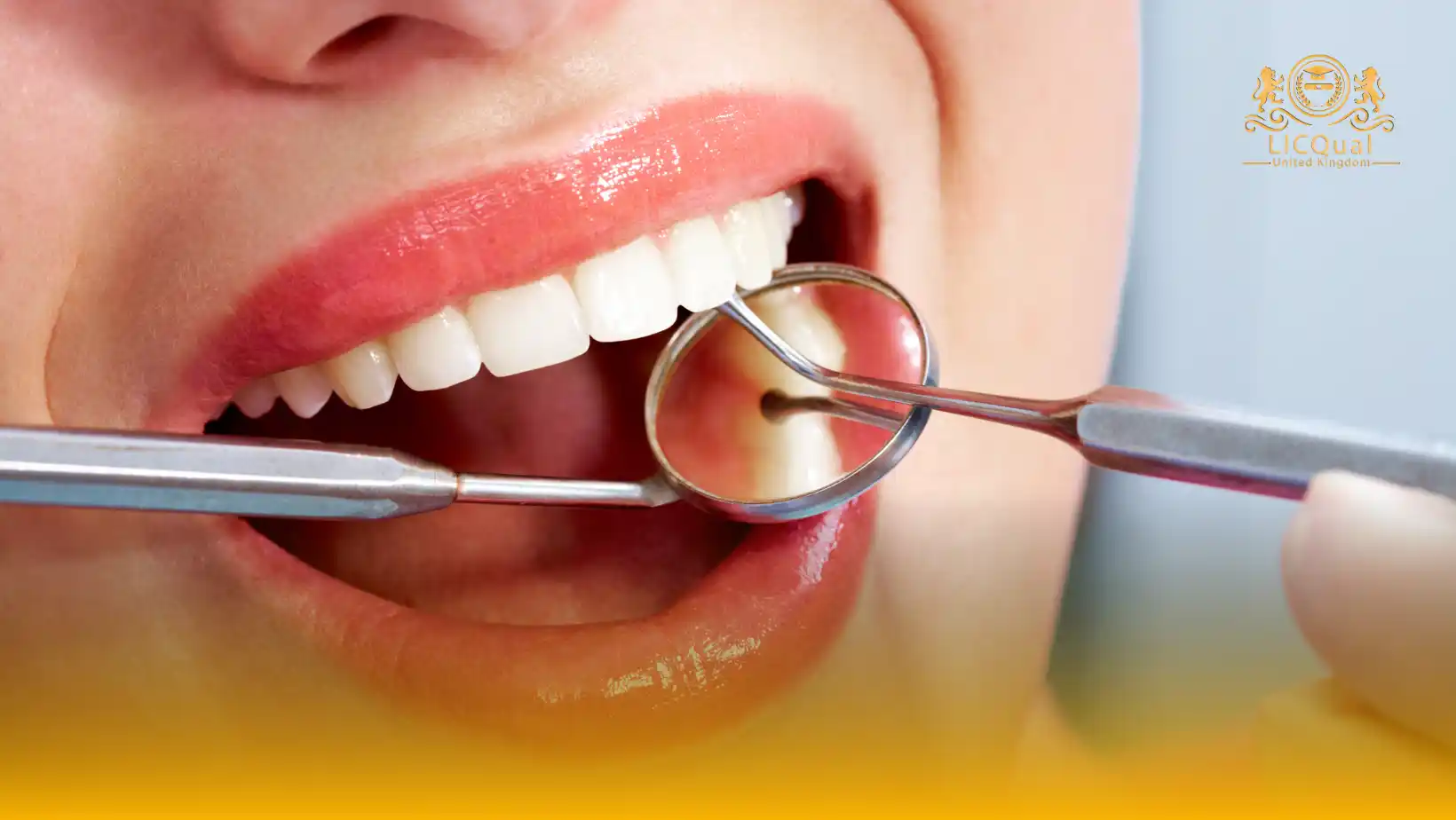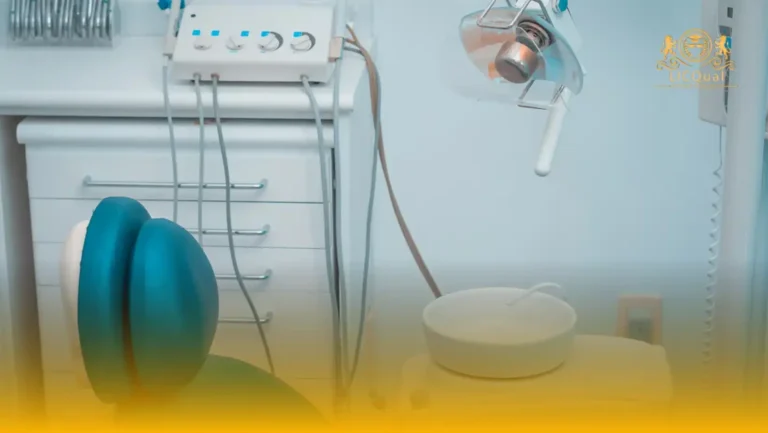The LICQual Level 3 Certificate in Dental Sleep Medicine is a specialised qualification designed for dental professionals seeking to advance their knowledge and skills in the diagnosis and management of sleep-related breathing disorders, including obstructive sleep apnoea. This course is specifically tailored for learners with prior dental or medical experience and is not intended for fresh candidates. It provides an excellent opportunity for professionals to enhance their career prospects, expand their clinical expertise, and engage in Continuing Professional Development (CPD).
Throughout the course, learners will explore the fundamental principles of dental sleep medicine, including patient assessment, treatment planning, and the use of oral appliance therapy. The qualification focuses on the integration of dental care with broader medical management to improve patient outcomes and quality of life. Learners will also study the latest research, clinical guidelines, and safety considerations relevant to dental sleep medicine.
Centres delivering the LICQual Level 3 Certificate in Dental Sleep Medicine must ensure high standards by employing competent and qualified staff with specialised expertise in this field. Additionally, centres should provide access to comprehensive learning resources, clinical facilities, and all necessary materials to support effective teaching and practical training. This commitment guarantees that learners receive thorough and high-quality education, equipping them with the confidence and competence to deliver dental sleep medicine services.
Course Overview
Qualification Title
LICQual Level 3 Certificate in Dental Sleep Medicine
Total Units
6
Total Credits
24
GLH
120
Qualification #
LICQ2200649
Qualification Specification
To enroll in the LICQual Level 3 Certificate in Dental Sleep Medicine, applicants must meet the following criteria:
|
Qualification# |
Unit Title |
Credits |
GLH |
|---|---|---|---|
|
LICQ2200649-1 |
Introduction to Dental Sleep Medicine |
4 |
20 |
|
LICQ2200649-2 |
Assessment and Diagnosis of Sleep Disorders |
4 |
20 |
|
LICQ2200649-3 |
Oral Appliance Therapy |
4 |
20 |
|
LICQ2200649-4 |
Patient Management and Treatment Planning |
4 |
20 |
|
LICQ2200649-5 |
Safety, Ethics, and Legal Considerations |
4 |
20 |
|
LICQ2200649-6 |
Clinical Practice and Case Studies |
4 |
20 |
By the end of this course, learners will be able to:
Unit 1: Introduction to Dental Sleep Medicine
- Understand the fundamentals of dental sleep medicine and sleep physiology.
- Recognise common sleep-related breathing disorders and their impact on health.
- Explain the role of dental professionals in managing sleep disorders.
Unit 2: Assessment and Diagnosis of Sleep Disorders
- Demonstrate knowledge of assessment tools and diagnostic techniques for sleep disorders.
- Identify signs and symptoms associated with obstructive sleep apnoea and other conditions.
- Interpret diagnostic data to support clinical decision-making.
Unit 3: Oral Appliance Therapy
- Understand the principles and mechanisms of oral appliance therapy for sleep apnoea.
- Demonstrate knowledge of the fabrication, fitting, and adjustment of oral appliances.
- Evaluate treatment effectiveness and manage patient follow-up care.
Unit 4: Patient Management and Treatment Planning
- Develop comprehensive treatment plans based on patient assessment and diagnosis.
- Apply patient-centred approaches to manage compliance and optimise outcomes.
- Coordinate care with other healthcare professionals as appropriate.
Unit 5: Safety, Ethics, and Legal Considerations
- Understand ethical responsibilities and legal requirements in dental sleep medicine.
- Apply best practices to ensure patient safety and confidentiality.
- Comply with relevant professional standards and guidelines.
Unit 6: Clinical Practice and Case Studies
- Apply theoretical knowledge to practical clinical scenarios.
- Analyse case studies to enhance problem-solving and clinical reasoning skills.
- Demonstrate competence in delivering dental sleep medicine services under supervision.
The LICQual Level 3 Certificate in Dental Sleep Medicine is ideal for dental professionals and healthcare practitioners who want to specialize in managing sleep-related disorders. This course is perfect for those seeking to expand their skills in oral appliance therapy, improve patient outcomes, and gain internationally recognized certification in dental sleep medicine. Whether you are a dentist, hygienist, or allied healthcare professional, this program provides the expertise to deliver safe, effective, and evidence-based sleep care.
1. General Dentists and Dental Practitioners
- Dentists aiming to specialize in dental sleep medicine.
- Professionals seeking to manage snoring and obstructive sleep apnea in practice.
- Clinicians wanting international certification in dental sleep therapy.
- Practitioners interested in integrating sleep medicine into daily practice.
- Dentists looking to enhance patient outcomes through specialized care.
2. Dental Hygienists and Assistants
- Hygienists seeking knowledge on sleep disorder assessment.
- Assistants supporting oral appliance therapy and patient management.
- Professionals aiming to improve patient education on sleep hygiene.
- Team members learning practical dental sleep techniques.
- Staff pursuing recognized certification to boost career prospects.
3. Dental Specialists
- Periodontists, prosthodontists, and orthodontists looking to integrate sleep medicine.
- Specialists aiming to offer oral appliance therapy to patients.
- Professionals seeking advanced training in dental sleep interventions.
- Clinicians wanting to collaborate with sleep physicians and multidisciplinary teams.
- Experts improving patient compliance and therapy success rates.
4. Healthcare and Medical Professionals
- Physicians, nurses, and respiratory therapists interested in dental sleep solutions.
- Professionals involved in patient care for sleep apnea and related disorders.
- Healthcare staff aiming to understand oral-systemic health links.
- Practitioners supporting interdisciplinary patient management.
- Staff learning evidence-based strategies to improve sleep health outcomes.
5. Dental Students and Graduates
- Recent graduates exploring specialized dental fields.
- Students preparing for advanced careers in dental sleep medicine.
- Learners seeking international recognition and certification.
- Individuals motivated to enhance practical, hands-on skills.
- Aspiring professionals aiming to improve patient-centered care.
6. Academic and Research Professionals
- Educators teaching sleep medicine or dental specialties.
- Researchers studying oral appliance therapy and sleep disorder management.
- Academic professionals integrating sleep medicine into curriculum.
- Professionals contributing to advancements in dental sleep research.
- Instructors providing evidence-based, hands-on sleep therapy training.
7. Career-Focused Dental Professionals
- Individuals aiming to expand clinical and practice opportunities.
- Professionals enhancing their skills to offer specialized services.
- Dentists seeking international recognition in dental sleep medicine.
- Learners pursuing professional growth and career advancement.
- Dental professionals committed to excellence and patient-focused care.
This course empowers professionals to gain expertise in dental sleep medicine, delivering impactful patient care while advancing their careers.
To effectively deliver the LICQual Level 3 Certificate in Dental Sleep Medicine, centres must meet the following requirements to ensure high-quality training and successful learner outcomes:
- Qualified and Experienced Staff: Centres must employ dental or healthcare professionals with recognised qualifications and specialised expertise in dental sleep medicine to provide expert teaching and supervision.
- Clinical Facilities: Centres should have access to suitable clinical environments equipped for patient assessment, oral appliance fitting, and follow-up care.
- Comprehensive Learning Resources: Centres must provide learners with up-to-date textbooks, digital materials, and practical aids related to dental sleep medicine.
- Health and Safety Compliance: Centres are required to adhere strictly to health and safety regulations, including infection control and patient confidentiality standards.
- Robust Assessment and Quality Assurance: Centres should implement assessment procedures aligned with LICQual standards and maintain internal quality assurance systems to monitor learner progress and course quality.
- Administrative Support: Centres must have efficient systems for learner registration, progress tracking, and certification management.
- Supervised Practical Experience: Centres should ensure learners have access to supervised clinical practice with patients requiring dental sleep medicine interventions to develop practical skills and confidence.
Meeting these centre requirements guarantees learners receive professional, safe, and comprehensive training in dental sleep medicine, preparing them for successful careers in this specialised field.
Assessment and Verification
All units within this qualification are subject to internal assessment by the approved centre and external verification by LICQual. The qualification follows a criterion-referenced assessment approach, ensuring that learners meet all specified learning outcomes.
To achieve a ‘Pass’ in any unit, learners must provide valid, sufficient, and authentic evidence demonstrating their attainment of all learning outcomes and compliance with the prescribed assessment criteria. The Assessor is responsible for evaluating the evidence and determining whether the learner has successfully met the required standards.
Assessors must maintain a clear and comprehensive audit trail, documenting the basis for their assessment decisions to ensure transparency, consistency, and compliance with quality assurance requirements.







